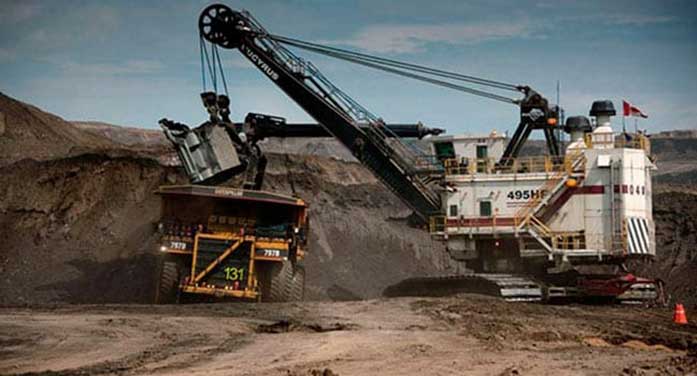 Canada’s oil sands sector is poised for a major environmental improvement within the next five years. According to analysis by consultancy IHS Markit, total oil sands greenhouse gas emissions are on track to start going down.
Canada’s oil sands sector is poised for a major environmental improvement within the next five years. According to analysis by consultancy IHS Markit, total oil sands greenhouse gas emissions are on track to start going down.
This follows more than a decade of producers consistently decreasing emissions per barrel, otherwise known as emissions intensity.
“Intensity improvements can add up, and they can result in absolute emission reductions,” says Kevin Birn, IHS Markit’s head of greenhouse gas emissions estimation.
“If the industry keeps doing what it’s been doing pretty much consecutively for the last 11 years, then it is destined to overtake a slowing pace of production growth, which has frankly outpaced improvements over the past decade.”
Oil sands production is expected to continue increasing, albeit at a slower pace. IHS Markit’s most recent forecast sees oil sands production rising to 3.6 million barrels per day in 2030, nearly 650,000 barrels per day more than in 2021.
IHS Markit said this week that average oil sands emissions intensity has declined by 20 per cent since 2009, or a drop of about 17 kg of CO2 equivalent per barrel. Average oil sands intensity is now 69 kgCO2e and as low as 41 kgCO2e at some projects. IHS Markit’s prior analysis has shown oil sands to be within the range of other crude oil consumed in North America, Birn says.
The improvement comes from a combination of factors, including improved efficiency at projects that combine oil sands mining and upgrading, and a greater share of production from less emissions-intensive operations.
Emissions decreases in the future could be even more dramatic than IHS Markit currently projects, Birn says, as the industry focuses more on total emissions. For example,e the Oil Sands Pathways to Net Zero consortium, which represents more than 95 per cent of production, has a 2030 target to reduce total emissions by 22 million tonnes relative to 2018.
Why Canada’s oil and gas sector gets so little respect by Mark Milke and Lennie Kaplan
Despite the dramatic decrease in carbon emissions intensity
Total oil sands emissions were 83 million tonnes in 2019, according to the latest data from the Government of Canada.
Deborah Jaremko is director of content for the Canadian Energy Centre, an Alberta government corporation funded in part by taxes paid by industry on carbon emissions.
Deborah is a Troy Media Thought Leader. For interview requests, click here.
The opinions expressed by our columnists and contributors are theirs alone and do not inherently or expressly reflect the views of our publication.
© Troy Media
Troy Media is an editorial content provider to media outlets and its own hosted community news outlets across Canada.

